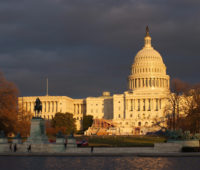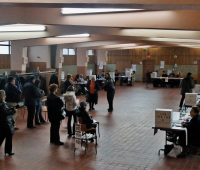Jaime Settle, a member of the SSRC Media & Democracy program’s advisory board, discusses her new book in the latest contribution to Democracy Papers. In Frenemies: How Social Media Polarizes America, she takes a deep look at how political information spreads on social media, emphasizing the importance of seemingly unpolitical posts and of exposure to the political opinions of people with whom we share only weak social ties.

























